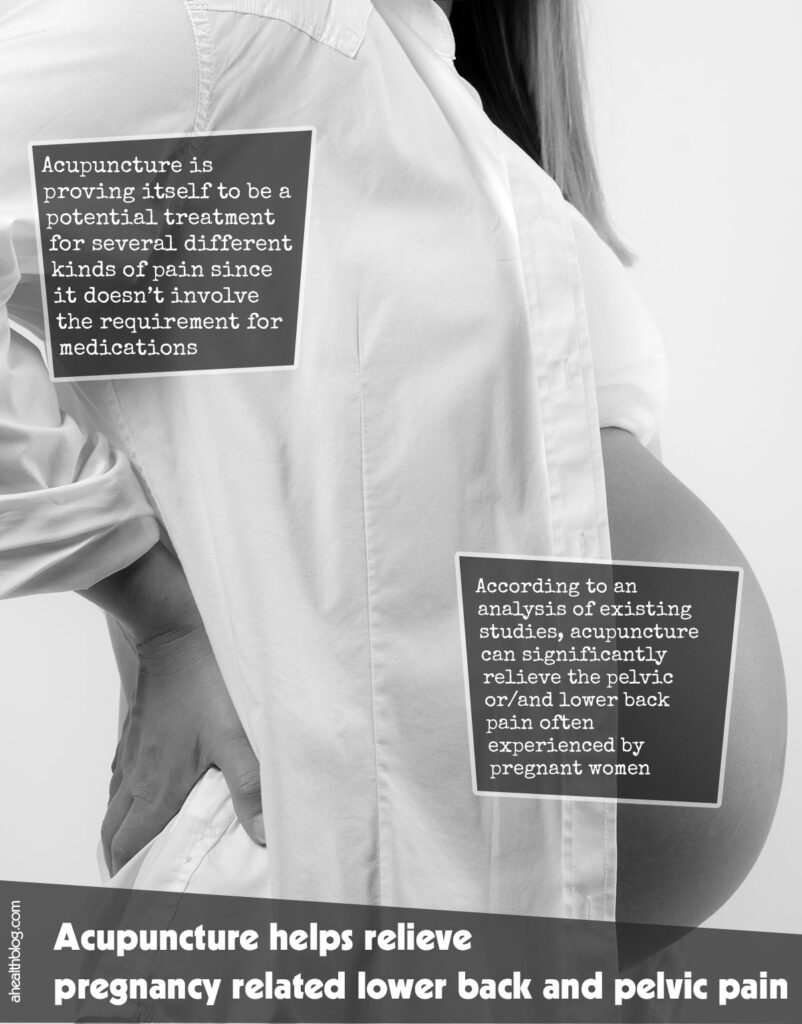An analysis of existing studies indicates that acupuncture can significantly help alleviate pelvic or lower back pain experienced during gestation, often experienced by pregnant women.
No notable major side effects were reported among infants whose moms chose the treatment, even though only some studies in the analysis looked at outcomes such as premature birth.
Acupuncture has emerged as an effective therapy to address various types of pain without needing medication and is generally safe.
No one knows for certain how exactly it can reduce pain; however, one theory suggests it involves the release of endorphins – your body’s own “happy chemicals”, and increased localized blood flow to muscles and skin.
But whether it can help ease the debilitating pelvic and low back pain experienced by as many as 90% of pregnant women remains up for debate.
Databases were reviewed to locate relevant clinical studies comparing the pain relief experienced by pregnant women who underwent acupuncture alone or combined it with other therapies versus those who received no or dummy treatments, including possible effects on their newborns.
Ten randomized controlled studies that included 1040 pregnant women were included in the final analysis. All pregnant women were healthy, on average 17-30 weeks gestation, and experienced pelvic or lower back pain.
Acupuncture was provided either by midwives, physiotherapists or trained acupuncturists. Three studies involved ear lobe acupuncture while seven focused on whole body treatments.
Reports were given on acupuncture points used for treatment as well as needle retention time and dose. Furthermore, seven studies reported using so-called forbidden points that are usually considered contraindicated during gestation as points to avoid during acupuncture treatments.
A combined analysis of 9 studies demonstrated that pregnancy pain could be significantly alleviated with acupuncture treatment, and four of them discovered significant improvements in physical function as a result of treatment with this method. Five other studies reported significant enhancements of quality of life following acupuncture therapy sessions.
Four studies found acupuncture to have significant differences when compared with no or other treatments.
Analysis revealed that acupuncture was safe, with four studies reporting no significant difference in Apgar health scores between newborns exposed to acupuncture vs other or no treatment at birth.
Seven studies reported minor side effects from acupuncture for pregnant women, such as bleeding and soreness at the needle site, pain relief, drowsiness, and even so, individuals rated it positively and most were prepared to repeat it if necessary.
However, the number of studies included in this analysis was relatively small and of variable quality. There was considerable variance in participant characteristics, outcomes, methodology and design across each study; with two of them reporting dropout rates exceeding 20% among their comparison group participants.
Yet, researchers determined that acupuncture merited closer consideration because of its ability to ease labor pain at a time when medications could have harmful side effects for mother and baby alike.

